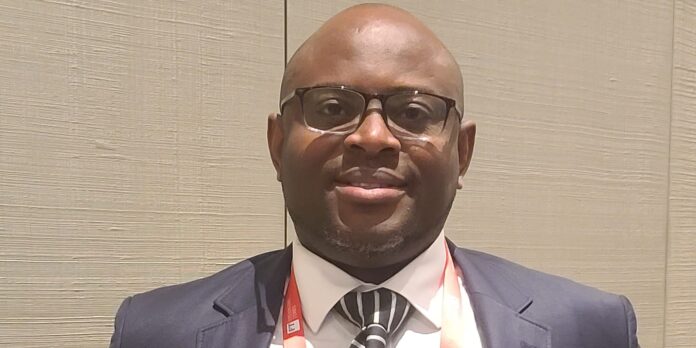When Fela Anikulapo-Kuti sang “suffer, suffer for world” decades ago, he was not just describing his time—he was warning future generations about governments that insulate themselves while ordinary citizens bear the weight of their policies. Today, under President Bola Ahmed Tinubu, his lyrics ring true again: suffer dey Nigeria pa pa ra pa.
On May 29, 2023, Tinubu declared that “subsidy is gone.” With those three words, petrol prices more than tripled overnight. Government officials sold it as a bold reform to save the economy. But for millions of Nigerians, it marked the beginning of a nightmare.
During a recent trip to Nigeria, I saw this pain firsthand. A CMS–Ikeja bus ride that used to cost ₦400 now gulps ₦1,200. From Ojodu Berger to CMS Marina, fares jumped from ₦500 to ₦1,500. Elderly people trek long distances, not for exercise but because they can’t afford fares. In markets, a crate of eggs costs about ₦8,000. A loaf of bread that was ₦700 now sells for ₦2,100. A 450g Blue Band butter sells for N4,120, while a tin of Peak evaporated milk sells for N670.
Students are not spared either. A short ride from the UNILAG campus gate that was ₦50 now costs ₦200. Many trek under the rain because their stipends can’t keep up with fares. Meanwhile, salaries have remained stagnant. Families are cutting meals. Small businesses are shutting down as expenses overrun profits. This is the true cost of subsidy removal.
While citizens struggle, the president continues foreign trips defended as “diplomacy” or “investment drives”. To ordinary Nigerians, they only reinforce a perception of a leader far removed from his people’s suffering. Governors, too, are cashing out from swollen monthly allocations but with little to show on roads, hospitals, or schools. I travelled on Ijebu-Ode Road to Lagos, and I kept wondering if it was the same road that dignitaries ply to the Ojude Oba festival. The road was a complete eyesore. Most roads remain death traps, despite the windfall that should have fixed them. Let me use this medium to call out Ogun State Governor, Dapo Abiodun: “Sir, kindly patch the roads if you can’t fix them because they are ‘federal roads’. If that will help save lives and reduce the pains the people are experiencing on that road.”
Yes, subsidy removal was inevitable. But leadership is not about bold decisions alone — it is about cushioning the impact. Other countries that ended subsidies phased them out gradually, paired with wage adjustments, subsidised transport, and targeted food interventions. Nigeria offered none of these. Instead, citizens were told to “suffer and smile”, just as Fela warned.
It is not just ordinary Nigerians who are lamenting. Former vice-president Atiku Abubakar has repeatedly faulted Tinubu’s handling of the economy, arguing that the subsidy removal and naira float were implemented without a coherent plan, worsening inflation and deepening poverty.
Peter Obi, the Labour Party’s presidential candidate, has also said the government cannot continue to punish citizens with policies that lack a human face. According to him, reform without safeguards is reckless and only serves to widen inequality.
Oby Ezekwesili, a former minister of education and World Bank vice-president, has gone further to insist that the abrupt removal of subsidy—without sequencing or preparatory measures—is the root cause of the current hardship. In her view, the government ignored economic wisdom by jumping into reform without cushioning policies, leaving citizens to bear the brunt of elite decisions.
When respected opposition figures and technocrats are united in their criticisms, it suggests that Nigerians’ pain is not just political rhetoric — it is real, widespread, and avoidable.
Ironically, Tinubu once told Nigerians: “Let the poor breathe; don’t suffocate them.” Yet, his policies today appear to be doing the opposite. He also promised continuity from Buhari’s administration — but for millions, things feel even worse.
Recently, the finance minister, Wale Edun, claimed that ₦330 billion has been disbursed as cash transfers to poor Nigerians. On social media, many dismissed it as propaganda because no one can point to actual beneficiaries. This mirrors the opacity of the Buhari years, when poverty deepened despite billions spent on “social investment”.
The 2027 general election is almost around the corner. If Tinubu wants to regain public trust, he must act urgently:
Implement subsidised mass transit in major cities.
Cut down on government wastage and unnecessary foreign trips
Lead by example by receiving treatment here instead of embarking on medical tourism
Weed out non-performing ministers and bring in competent ones
Roll out targeted food support and transparent cash transfers.
Demand accountability from governors on how they spend their larger allocations.
To his credit, electricity supply has improved noticeably in recent months. Nigerians will acknowledge progress where it exists. But praise must go hand-in-hand with accountability. That is how to build a Nigeria that works for all.
At the coronation of the new Olubadan, Tinubu likened current suffering to the “pain of a painful surgery” that will lead to prosperity. The question is: how long must Nigerians endure this surgery without anaesthesia?
Fela’s voice still echoes: a warning against governments deaf to the cries of their people. Tinubu faces a historic test — will he respond with compassion and accountability, or will Nigerians continue the endless cycle of “suffer dey Nigeria paparapa”?
Akinsuyi, former group politics editor of the Daily Independent, writes from United Kingdom. He can be reached at shabydayo@gmail.com.



